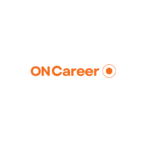Students take up sciences in 10 + 2/Intermediate to become a doctor. But many are not able to join due to the limited number of seats. A decade back there were very few opportunities for students who could not crack NEET. But with the Indian economy rising, Health care sector is growing & needs a skilled workforce.
One of them is Allied health & offers great options for students who have completed their 10+2 education/Intermediate in science. These courses are designed for students for careers in diagnostic, therapeutic, and support services that are crucial in healthcare systems.
Some of the popular Allied Health Courses in India
- Bachelor of Physiotherapy (BPT) – A four-and-a-half-year course, this includes both theoretical and practical training in physiotherapy techniques.
- Bachelor of Science in Medical Laboratory Technology (BSc MLT) – A three-year course focusing on diagnostic lab techniques.
- Bachelor of Occupational Therapy (BOT) – This course emphasizes therapeutic techniques to help people regain their physical and mental abilities.
- BSc in Radiology and Imaging Technology – Focuses on radiographic techniques and imaging procedures.
- BSc in Nutrition and Dietetics – A course that covers the science of nutrition and its impact on health.
- BSc in Anaesthesia Technology – Trains students in the use of anaesthesia techniques and equipment in surgeries.
B.Sc. in Medical Laboratory Technology, B.Sc. in Emergency Medical Technology, B.Sc. in Radiography (Medical Imaging Technology), B.Sc. in Occupational Therapy, B.Sc. in Speech-Language Pathology, B.Sc. in Optometry, B.Sc. in Audiology, B.Sc. in Ophthalmic Technology, B.Sc. in Perfusion Technology, B.Sc. in Respiratory Therapy & B.Sc. in Dialysis Technology are some of the other courses on offer.
Eligibility Criteria & Educational Qualification
Students who have completed their 10+2 with Physics, Chemistry, and Biology (PCB/BiPC) are eligible. Few institutes also accept candidates with a background in Mathematics (PCM) or other streams for specific courses like hospital management.
Marks percentage required: Vary from institution to institution. But it’s good to have a minimum of 50% aggregate marks in 10+2.
Admission Process
Admission to allied health courses can be merit-based or through entrance exams. Some popular entrance exams include:
– AIIMS Entrance Exam
– JIPMER Entrance Exam
– NEET (some institutes consider NEET scores for allied health courses)
– State or University-Level Entrance Exams
There are colleges which offer direct admission based on 10+2 scores.
Career Opportunities
– Physiotherapist
– Medical Lab Technologist
– Radiology Technician
– Occupational Therapist
– Nutritionist/Dietician
– Anesthesia Technician
– Healthcare Administrator
Salary Packages
Salaries vary depending on the course and specialization. Entry-level packages will be in the range of ₹2.5 to ₹5 lakh per annum. Salaries increase with experience. Senior professionals with experience get a package of ₹8 to ₹12 lakh per annum or more, in cities & larger chain of hospitals.
Professionally Allied health offers a diverse and fulfilling career path in the healthcare industry, combining compassion with technical expertise to improve patient care and outcomes.
